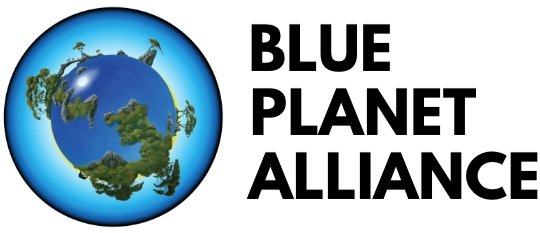HOW THE U.S. CAN REMAIN A CLIMATE LEADER
Blue Planet Alliance has had incredible success with our Fellowship Program. As regular readers are aware, we have brought up to four leaders from each of 28 countries to Hawaii to show them firsthand how Hawaii navigated issues related to legislation, finance, technology, and more to become the first U.S. state to legally mandate a transition to 100% renewable energy.
Hawaii is already at 38% renewable energy, and on a path to saving billions every year, being energy independent, and no longer piling on to the environmental crisis that is leading to global extreme weather and, for islands in particular, leading to an existential crisis because of rising sea levels and damaged ocean ecosystems, which harms their tourism and food supply.
One of the leading lights in our program, and a close advisor to our work, is Hawaii State Senator Chris Lee, who authored the bill that became Hawaii’s law. Senator Lee is now the President of the National Caucus of Environmental Legislators (NCEL), and just last week, NCEL teamed up with our sister organization, Blue Planet Foundation, with the assistance of BPA Executive Director Francois Rogers, to produce a “states” version of our Fellowship Program.
Starting last week, representatives from six states (Colorado, Minnesota, New Mexico, Rhode Island, Utah, and Wisconsin) and the U.S. territory of the Commonwealth of Northern Mariana Islands (CNMI) joined Senator Lee, other NCEL leaders, members of the Blue Planet Foundation team, and Rogers for a program modeled on the BPA Fellowship Program.
The week began on the Big Island, as the cohort assembled at the off-the-grid home of BPA and BPF founder Henk Rogers, to get a glimpse of how renewable energy is achievable. The proceedings then switched to Oahu, where most of the rest of the work took place at the East-West Center, on the campus of the University of Hawaii at Manoa.
Just like in the BPA program, the NCEL/BPF workshop featured high-level speakers who have led Hawaii to this leadership position, and also group activities so that the attending state senators and representatives can both learn from each other, as well as teach us about their own situations. The group activities included a visit to the Puna Geothermal Plant and an agrivoltaic solar farm.
During the workshop, each participant was able to share the political landscape of their jurisdiction as well as the challenges that they face ahead. They also had a chance to meet leaders of the Hawaiian Electric Company, as well as the Kauai Island Utility Cooperative, to hear perspectives from the utilities on the road to a transition to a 100% renewable-energy future. While some of these states already have a similar 100% renewable-energy target, this workshop further reaffirmed that though the road ahead will present many challenges for all of us, collectively, sharing and learning from each other will make us better and stronger leaders, and aid in developing the legislation needed for the transition.
If the U.S. federal government plans to take its eye off the ball on climate for the next four years, states have the option of making their own decisions for the future — including choices for a greener economy. Rather than abdicate global leadership, the U.S. can take the lead, through a partnership of states. This is another potentially game-changing program in which the Blue Planet family of organizations is playing a leading role.




